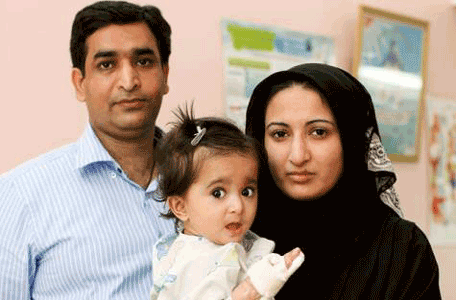Genetic Testing for and Inheritance of Thalassemia
Thalassaemia is a group of recessive conditions, so each parent must pass on a faulty gene to have a child born with the condition. Parents of a child with the condition are usually only carriers (have one faulty gene) and such parents have a 1 in 4 chance of having a child with the condition with each birth.
Set up in 2001, the NHS Sickle Cell and Thalassaemia (SCT) screening programme offers genetic screening to all pregnant women, fathers-to-be (where antenatal screening shows the mother is a genetic carrier) and all newborn babies (as part of the newborn blood spot screening programme) in England. The UK National Screening Committee (NSC) has not recommended population screening before conception and does not recommend newborn screening for thalassaemia because the test is not sufficiently reliable and there is no immediate treatment for babies with thalassaemia. However, the newborn blood spot test does detect the most serious form of thalassaemia, beta thalassaemia major, but it does not detect babies who are thalassaemia carriers.

